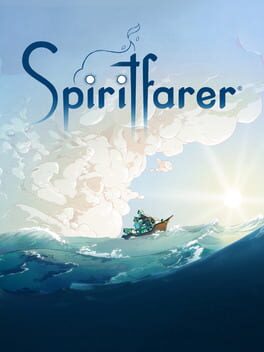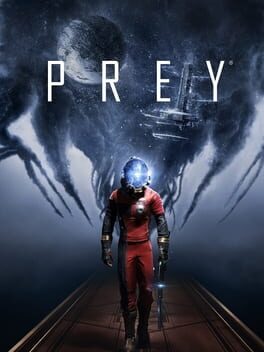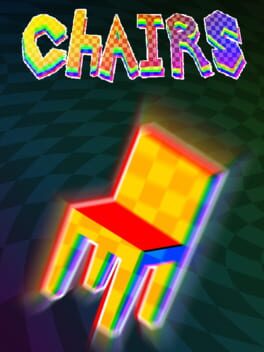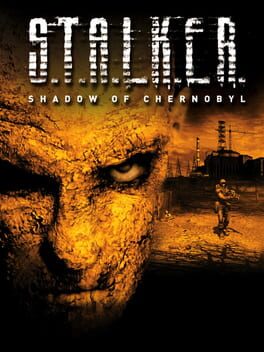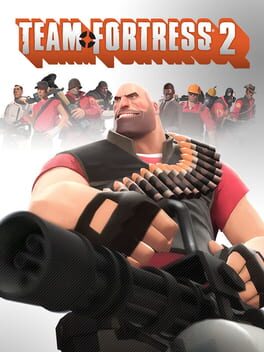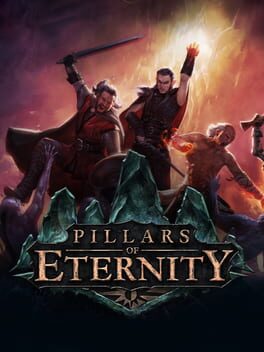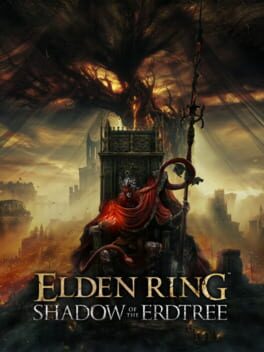LordDarias
BACKER
Idk
Badges

Replay '14
Participated in the 2014 Replay Event

Clearin your Calendar
Journaled games at least 15 days a month over a year

GOTY '23
Participated in the 2023 Game of the Year Event

2 Years of Service
Being part of the Backloggd community for 2 years

Elite Gamer
Played 500+ games

Early Access
Submitted feedback for a beta feature

Pinged
Mentioned by another user

Famous
Gained 100+ followers

Treasured
Gained 750+ total review likes

Full-Time
Journaled games once a day for a month straight

Trend Setter
Gained 50+ followers

On Schedule
Journaled games once a day for a week straight

Gamer
Played 250+ games

GOTY '22
Participated in the 2022 Game of the Year Event

Adored
Gained 300+ total review likes

Busy Day
Journaled 5+ games in a single day

Popular
Gained 15+ followers

Loved
Gained 100+ total review likes

Donor
Liked 50+ reviews / lists

Shreked
Found the secret ogre page

Listed
Created 10+ public lists

Roadtrip
Voted for at least 3 features on the roadmap

Organized
Created a list folder with 5+ lists

N00b
Played 100+ games

Well Written
Gained 10+ likes on a single review

Best Friends
Become mutual friends with at least 3 others

Noticed
Gained 3+ followers

Gone Gold
Received 5+ likes on a review while featured on the front page

Liked
Gained 10+ total review likes
Favorite Games
931
Total Games Played
131
Played in 2024
014
Games Backloggd
Recently Played See More
Recently Reviewed See More
Now that I have your attention with that stupid intro, I hope I can make clear that whilst mixed, my overall feelings on Prey are positive. I had originally played about 5 hours of Prey before dropping it, I dont know whether this was due to the comparatively slow pace of the opening or the fact that I was stupidly trying to play the game stealthily or just being in a bad mood at the time, I mean; it happens.
Second time around I can appreciate it much more. I was a bit wary at first when saw that Morgan's password was Fermi Paradox and I think there's even a whiteboard with the Chinese Room thought experiment in the first area which made me go "oh boy, another sci fi story that thinks its so fucking clever cause it read a few wikipedia pages on philosophical concepts" but thankfully its not so surface level as I feared it would be. There is also the matter of the fact that I basically guessed the game's ending almost inmediately but we'll get to that later.
As a modern spiritual successor to the likes of System Shock (incidentally Psychoshock would have been a much better title) its top notch. The Deus Ex levels of variation in approach and dense level design allowing for multiple approaches that somehow manages to do so whilst simultaneously making the levels plausible architecturally and through their visual design ; you really believe this is a space cruiseship/research center that people lived in and even thrived. Special mention should go to the (I think Art Deco? Im not much of an art history guy im afraid) propaganda posters and visual design of the ship's interior - the art designers very convincingly played their dual role as creators of the levels as well as interior designers for a giant transnational corporation within the game's fiction.
The Gloo Gun is a very clever weapon/tool on the level of the gravity gun from Half-Life although it kind of suffers from what I can only describe as the quickly fading wonder of its own matter-of-fact effectiveness. Okay that was a really dumb and pretentious way to put that, what I mean is that yes, the first time you use it for a novel purpose like plugging a leak, making a staircase to cheese level design, crit and enemy, put out a fire or whatever its exciting and feels rewarding of your ingenuity, but then it just sort of becomes the new normal and subsequent solutions are more just sort of going through the motions. Same with all the times I opened a door using the Nerf Gun to hit the door button from the outside or used a recycler grenade to bypass a blockage without the strength upgrades.
This is an insane comparison, admittedly, but I am reminded of my Dad's thoughts on having children. He said that when they had their first kid they were constantly worried and going to the pediatrician if she so much as coughed a demi-tone higher (who would roll their eyes and ask if they were first time parents before telling them everything was fine) and everything about it was highly emotional in the good and the bad. He said when they had me they were much more relaxed about it and as much as all creations of life are magical in their own way, I imagine its not quite as impactful on a re-do. He jokingly said if they had had a third child they would have given it money to get a cab home from the hospital when it was ready to go.
Anyways. I was a bit mixed on the storytelling of Prey. Fitting for a game of its DNA, you wake up in a facility with no memory of what happened and pretty much everyone's dead and posed in a convenient way for you to deduce how they arrived at such a state. Its up to you to find out what happened through sigh random text and audiologs like every fucking first person sci fi game ever made. Now, I suppose the joke is on me cause I actually did read/listen to those I found which is unusual for me. I suppose the mysteries were effective enough at drawing me in to the world and as I said, I guessed the game's ending early on so I was mostly trying to play "spot the foreshadowing" and thinking through some of the implications and broad philosophical questions of the game's setting. Unfortunately not all of the secondary writing is that great. Its always the issue for me with these types of "everyone is dead" stories that the writing always seems so functional? You know what Im talking about, so many entries in these types of games being like "Im going to the LOADING BAY, I hope no GIANT MONSTERS tear out my head through my ass and throw me in the TOILET" and sure enough there is a blood trail leading to the men's restroom. Thats not to say that Prey is entirely like that, hence why I said I was "mixed" on it. There are enough logs that attempt to be more subtle and/or try to suggest that the people of the station actually had rich inner lives beyond unsuccesful attempts at levity and suspicions of how insanely dangerous the whole operation was from the start.
I think the issue is that I was fairly thorough in my exploration of Talos 1 and I can only really think of one moment of genuine human connection I felt to the characters in the game, through a series of logs relating to the character of Danielle Sho and her partner Abigail Fo. The resolution seemed rather abrupt, but I legitimately felt something reading her last few emails. Thats about it though, everyone else just seemed stiff to me, whilst its nice that unlike other similar games, there are actually a few survivors to interact with, they didn't really sell me on actually just having seen their coworkers subjected to nighmarish body horror and trying to survive not knowing their only hope is a man currently trying to blow them all up to stop the spread of the eldritch horrors. Its not nearly as bad as Dishonored, admittedly, which was 99% bland characters speaking in monotone at a psychopathic dullard.
Speaking of Dishonored, it definitely improves upon the morality system, given that I actually stumbled across the "good" ending without having to spend the entire game quicksaving and reloading crouching past guards. There was one aspect which annoyed me, which is fairly unambigously telegraphed that installing the more interesting toys will lead to a worse ending which led to me basically not using any of them (just 2) not because it was my preferred playstyle or made most sense thematically but because I didnt want to get slapped with the naughty card at the end (also cause turrets would have turned hostile) but still, an improvement IMO. There was one good thing I did that got erased because the NPC I saved bugged out and died somehow, which was... disappointing to say the least.
I was also greatly annoyed by the game's dynamic music, not the quality of the OST itself but the patronising quality of the game's systems in regards to music, unsubtly alerting to danger and/or trying to fake you out with stupid music queues in a way which eventually led me to figure out how they worked in many cases from how predictable they were. Its sad, given the game's pseudo horror ambitions that it feels the need to undermine the tension with such foolishness which is unfortunately in fashion now. "Oh there must be a monster nearby cause there's loud techno music" vs a few days ago being genuinely jumpscared by fucking S.T.A.L.K.E.R, walking into a building with no music and being greeted by the simple sight of a hostile soldier.
There is a lot of speculation, given the production values of Prey and its general competence how it failed to really break out as a super hit the way that could probably be expected to and there are always a few common reasons given as to why : 1) The Name. Those who love Prey the most will hold this to be the main and only reason for its failure, Bethesda's corporate bullshit simulatenously done to fuck with the original devs of Prey and seemingly set up Arkane for failure as it failed to market the game as the spiritual sequel to System Shock. I think there is definitely some truth to it, but that only really explains initial sales, its definitely a popular game by now so its not as if its a failure, but I dont think "Psychoshock" would have smashed records either, given the relative niche appeal of Immersive Sims.
2) Its relative lack of iconic imagery or memes: I mean the word meme in a very broad way, what is the popular image of Prey exactly? The mimics maybe? Its competence almost works against itself, its like, an expertly crafted dish which just lacks salt. A bit like dishonored, I don't know what the "Oh My God JC a Bomb : A Bomb?!" moment is. The high concept sci-fi setting is perhaps hard to distill into a simple package; one could argue this is a good thing but it also makes it hard to sell.
3) The game's ending
I do recommend Prey, so if you haven't played it yet I would ask that you do and come back later cause I'mma spoil it.
*
*
*
Prey basically ends with "It was all a dream". Well, not exactly; more like "It was all a simulation" which I think most people would have guessed by the time of the game's final stretches. Im not of the opinion that those types of endings are necessarily bad, importantly for me, it doesn't matter if its a dream if the dream mattered : like say, a Christmas Carol. Even if Scrooge dreamed all that ghost business it still changed him as a person by the end and we get to see that change. Unfortunately, with Prey we dont really get to see much of the impact of our choices. They basically serve to convince our overlords on whether or not we : an alien-human hybrid exposed to the memories of the real and presumably deceased Morgan Yu in an attempt to engineer the empathy that the typhon are unable to possess to hopefully undo the alien takeover of Earth, can be trusted as a newly created member of the human species. In that sense, your choices ARE paid off with the various characters vouching for your kindness or lack thereof, which is a lot cheaper than actually showing us a real impact on what we did: the simulation is based off of the real events of Talos 1 although Im still hazy on the details; how exactly did the Typhon escape if Morgan blew up Talos 1? Idk maybe it was in some text log I didnt read. And in the end you're left with the choice of working with Alex Yu; who by all rights should be up there with Joseph Mengele in the history books, to somehow save earth question mark? Or just ice him, ironically the real proof of the newfound empathy of the Typhon hybrid, empathy for the victims of Transtar.
So its just kind of anticlimactic. Deliberately so, but yeah Idk what Im supposed to feel or take away here, or if maybe theres some hidden piece of lore Im missing that makes it all make sense. Im not really sure what the impact of what I did was or what exactly the point of it all was in the grand scheme of things. And its not as if I was hoping for Morgan to chill in a hot tub with a model smoking a blunt whilst credits roll, but it doesnt really feel like closure. Hell, I think Soma's ending was way more effective at being disquieting and climactic. Just like the game's ending, I don't really know how to end this review either, so I guess I wont even try.
The thing is though, Im clearly in the minority, ER has sold incredibly well and whichever flaws I thought it had have evidently not dented its commercial success so why would they ever think to deviate from it. Sure enough most of what annoyed me about the base game is here, though in fairness; SOME things really have been changed. The microdungeons arent quite as barren and boring now, the bone fist is back and there seems to have been an effort to lean more into the difficulty of the levels with long sequences of enemy gauntlets without a grace every 5 steps (for the most part). The highlight for me was during a particularly vertical section in a big library; I have thought in the past how disappointing it was that as the souls series progressed we seemed to lean more and more into the combat difficulty over everything else, consider DS1 : what would you say is the hardest part of that game? I would argue the Anor Londo rafters and the section inmediately before solaire's bonfire fit the bill and those are about 50/50 precision platforming and combat encounter.
Sure enough there is a section of that library that was pleasantly surprising, navigating the thin rafters carefully I made it to one of the guards of the area who's attack patterns I'd gotten somewhat used to in the regular sections of the library with wide open areas to maneuver and dodgeroll about. On the wooden beams though, I could only dodge forwards or backwards so it was tense as hell trying to attack or retreat to heal without falling to my death and somehow I was able to close the distance and kill him right before going up a ladder to safety. That was genuinely a more interesting and satisfying encounter to me than 95% of all of ER's bosses.
On the opposite end of the spectrum, there was a particular annoying boss which made me do what Im going to coin as the "delayed ragequit". The traditional rage quit is : you get mad at a game so you close it and uninstall right? Well, something that happens to me sometimes and I don't think Im the only one, is I'll get mad at an annoying boss/section, beat it out of spite and then when I cool down I realize I am spending my limited time on this earth on something I don't enjoy and I uninstall the game.
Inb4 Skill Issue, Mad Cuz Bad etc yeah I don't care. Thats my takeaway here, I simply do not care about souls anymore, this was already a long shot to rekindle my interest in the series but nah, Im done. Its fine, really, this is what people want seemingly, and y'know good for them. Personally Im done with these 1 million hit combo bosses with absurdly delayed timings, Im going back to demon souls where bosses started their attacks on a monday and executed them on a thursday.
Its funny though, the scadutree system. If ever there was a mechanic more steeped in the ing admission by the developers that they fucked up : "oh god, Miyazaki-san we made this shit unbalanceable almost by design due to the open world" : "fuck it, just make an entirely separate system for balance based on collecting critical path breadcrumbs". But IMO this shit is even less balanced. Sometimes I encountered a boss that assumed I was way tankier and sometimes the opposite. I remember hearing people talk about that one hippo being a bastard but I one tried it with my dumb ranger build cause I was loaded on cereal box tokens.
As for the story, idk, Miquella was bad or something. As usual I continue to not give a shit about the lore, fool me once etc. Base game ER was the only game I ever tried to actually piece it all together and the sheer nothingness of the experience + being more of the same "blah blah blah decay, ambition, delaying the inevitable" I just dont care, cause it doesnt matter; more so than how videogames dont matter as a baseline, or well, more than how anything doesnt matter cause we're all gonna die and be forgotten about eventually. That got dark and edgy needlessly? Yeah it did. I dont have a closer here, hug your loved ones and play lumines or something.
Its definitely been talked about to death but it doesnt make it any less true that the TF2 mercs achieve with essentially the purest of pure character design brilliance and a few odd voice lines what many AAA faux cinematic mocapped hollywood actors games can't i.e be memorable.
There is actually some plot to TF2 and there's the comics as well, but lets be real, nobody gives a shit and it isnt used as a crutch for bad characterisation (supplementary material being supplementary? NO!). Even the few direct traditional bits of characterisation like the Meet the... series are incredibly brief and are so great that it only makes this aspect stronger. Meet the medic is an all timer and even works as tutorialisation.
So what about the game? Well, it came out in 2007 so obviously I was mostly getting blown up by 10k hour demomen and soldiers hitting the most surgical ass rockets/bomb shots ever at my dumb ass, but somehow I was still regularly getting top of my team simply because I actually tried fulfilling the objectives and being a medic is pretty damn easy : heal people and try not to get killed by snipers. Also ubercharge the nearest heavy when appropriate.
I think TF2 is to multiplayer games what Half Life 1 is to First Person shooters. Old enough to have sensibilities that have since gone out of fashion whilst basically being the pioneer that marked the end of the traditional genre it upended. So you can rocket jump like its quake deathmatch but there are also F2P cosmetics. Lest we forget these mfers invented lootboxes! At least crafting and achievements and all that make it so youre not too disadvantaged by not spending a single penny, but thats only cause we've been worn down by the bullshit thats come since, which is partly TF2's fault! Its like how Max Landis being a shithead sex pest almost makes you forget his dad got 3 people killed.
I will say though, being able to use paywalled taunts by walking up to someone currently doing the taunt is great and learning of it retroactively makes Fortnite super lame for not having the same feature
In summary, cool game. Would be even cooler is casual wasnt mostly filled by people spamming slurs in chat, but nobody's perfect (just in case someone comments, yes this is a sarcastic joke, stop typing)
